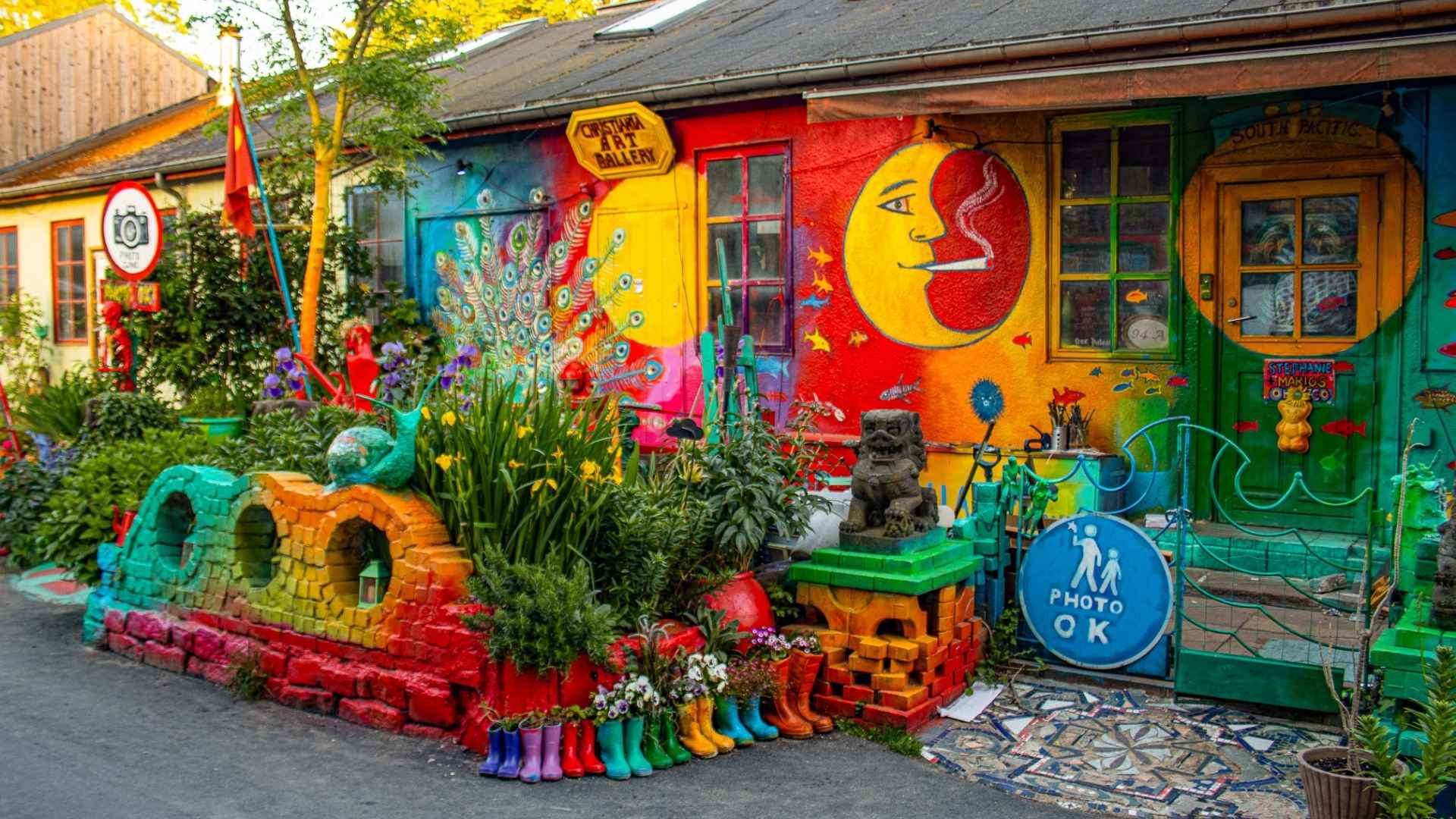A Quiet Neighborhood Shaken by War
On a spring day in March 1945, Frederiksberg - the stately Copenhagen district known for its gardens and classical facades - was suddenly pulled into the violent orbit of World War II.
I’ve walked past the statue at Frederiksberg Allé 74 more times than I can count, and even though it is very different from when the original Jeanne d’Arc French Catholic School, the area still hold a silence that feels heavy – especially when you know what happened here.
What was supposed to be a precision strike against the Gestapo turned into one of Denmark’s most devastating wartime tragedies.

The Intended Target: Shellhuset, the Gestapo HQ
Bak in 1945, during WW2, The British Royal Air Force had received intelligence from the Danish resistance: inside Shellhuset, near the city center, the Gestapo was holding hundreds of Danish prisoners and key documents that could cripple the underground movement.
Operation Carthage was born. The plan: low-flying Mosquito bombers would strike the Shellhuset, destroying it and freeing prisoners. But low-level bombing over a densely populated city like Copenhagen was always a risk. The sky over Frederiksberg that day became a tragic theatre of miscalculation.
A Fateful Mistake Over Frederiksberg
It was 11:20 AM on March 21, 1945. The first wave of RAF bombers successfully hit Shellhuset. But one of the planes in the second wave clipped a lamppost and crashed near the Jeanne d’Arc School in Frederiksberg. The following aircraft mistook the smoke rising from the crash site for their target and dropped bombs over the school. The devastation was immediate. 86 children and 18 adults died in the bombing.
Den Franske Skole: A Community Within a City
Founded in 1924, the Jeanne d’Arc School served the French-speaking Catholic community in Copenhagen, welcoming both French expatriates and Danish students. Located in peaceful Frederiksberg Allé, it was a place of learning and cultural exchange. “Den Franske Skole,” as locals called it, was protected in theory, neutral under the rules of war. That made its bombing all the more incomprehensible. The neighborhood was - and still is - tight-knit. Even today, longtime residents speak quietly about that day, their voices shadowed by memory.
The Human Toll: Lives Lost and Forever Changed
Most of the children killed were between the ages of 6 and 10. The images captured after the bombing are harrowing: rows of small shoes in the rubble, nuns covered in dust, parents digging through debris. I remember speaking with an elderly shopkeeper on Gammel Kongevej years ago who recalled hearing the explosions as a boy. “We thought the world had ended,” he said. The tragedy left a wound in Frederiksberg’s heart that still aches under the surface, even as the city grew around it.
Memorials and Memory: How Frederiksberg Remembers
Today, the bombing of the French School in Frederiksberg is commemorated with a solemn memorial at the site where the school once stood. A statue created by sculptor Max Andersen was unveiled in 1953 and serves as a lasting tribute to the 86 children and 19 adults who lost their lives. The statue depicts a grieving mother holding her lifeless child, symbolizing the innocent lives lost and the deep sorrow that followed. Though the original school no longer exists, the memory is kept alive through annual ceremonies and by its inclusion in films and historical narratives that honour the victims.
A Story That Echoes Across the City
The bombing of Den Franske Skole represents the complexity of resistance, the dangers of war fought in populated cities, and the collateral damage that still stings generations later. What makes it haunting is that it was an accident - one driven by good intentions but marred by tragic error. Walking through Frederiksberg, from leafy avenues to the many nearby cafés and restaurants, you carry the weight of that story whether you realize it or not.
Practical Information for Visitors
Where to go: Frederiksberg Allé 74. It’s easily accessible by metro and within walking distance of central Copenhagen.
Nearby: Combine your visit with a walk through Frederiksberg Gardens or a pint at Frederik IV. It’s a contemplative way to process what you’ve just learned.
.png)
.webp)




.avif)































.avif)


.avif)


.avif)





